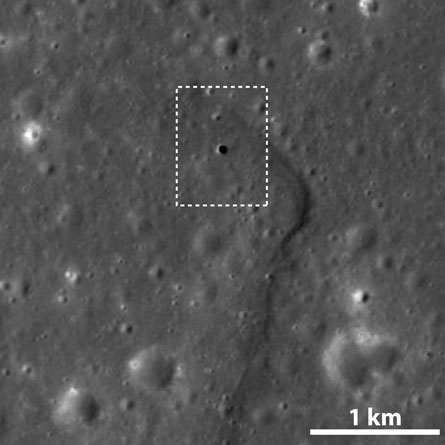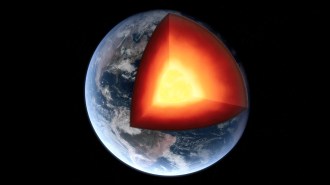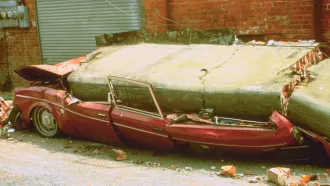New revelations of a big hole in the moon don’t revive the notion that our cosmic companion is made of Swiss cheese. Instead, scientists say, the unusually proportioned feature is most likely a portal into an underground cavern that once held flowing lava.

Analyses of high-resolution images taken by a moon-orbiting probe suggest that the 65-meter-wide, nearly circular feature is between 80 and 88 meters deep, says Carolyn H. van der Bogert, a planetary geologist at Westphalian Wilhelm’s University Münster in Germany. Typical impact craters of this size, she notes, are less than 15 meters deep.
Although the hole is located in a lunar province once home to widespread volcanic activity, a dearth of hardened lava around the hole indicates that it isn’t a volcanic crater, she and her colleagues report in the Nov. 16 Geophysical Research Letters. The geology of the region also suggests that the hole isn’t associated with a fault zone.
The feature is likely what geologists refer to as a skylight, or collapsed portion of the roof of an underground tube that once held flowing lava, van der Bogert and her colleagues propose. If that’s true, the skylight is the first such portal spotted on the moon.







